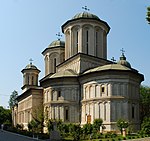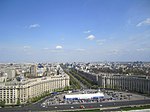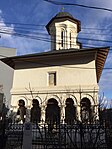The Colectiv nightclub fire was a deadly fire in Bucharest, Romania, on 30 October 2015, which killed 64 people (26 on site, 38 in hospitals) and injured 146. The fire, which was the deadliest fire in the country's history, occurred during a free concert performed by the metalcore band Goodbye to Gravity to celebrate the release of their new album, Mantras of War. The band's pyrotechnics, consisting of sparkler firework candles, ignited the club's flammable polyurethane acoustic foam, and the fire spread rapidly. Most of the victims were poisoned by toxins released from the burning foam. Overwhelmed by the high number of victims, Romanian authorities transferred some of the seriously injured to hospitals in Israel, the Netherlands, Belgium, Austria, the United Kingdom, Norway, Germany and France. Mass protests over the corruption linked to the fire led to the resignation of the Prime Minister of Romania, Victor Ponta.In advance of the concert, the band announced that they would be including customised lighting, "pyrotechnic effects", and scenic elements brought in to "give life to the science fiction artwork" of the new album. The band's guitarists Vlad Țelea and Mihai Alexandru, as well as drummer Bogdan Lavinius and bassist Alex Pascu died. Vocalist Andrei Găluț was hospitalised with injuries.The club's main shareholder and co-founder, Alin George Anastasescu, together with two other associates, Costin Mincu and Paul Cătălin Gancea, were arrested on 2 November for negligent homicide, negligent bodily harm, and negligent destruction. The club had opened in May 2013 on the location of the previous Pionierul factory, at Tăbăcarilor Street 7 in Sector 4 of Bucharest, within 3 km (2 mi) of the Palace of the Parliament.
Because it was a high-casualty fire caused by illegal indoor usage of outdoor pyrotechnics, the 2015 disaster is similar to the 2001 Canecão Mineiro nightclub fire in Belo Horizonte, Brazil; the 2003 Station nightclub fire in West Warwick, Rhode Island, in the United States; the 2004 República Cromañón nightclub fire in Buenos Aires, Argentina; the 2008 Wuwang Club fire in Shenzhen, China; the 2009 Santika Club fire in Watthana, Bangkok, Thailand (cause is disputed); the 2009 Lame Horse fire in Perm, Russia, and the 2013 Kiss nightclub fire in Santa Maria, Brazil.











